Wet Wood Burns Black
I’ve never had any treasure before. I can’t wait.
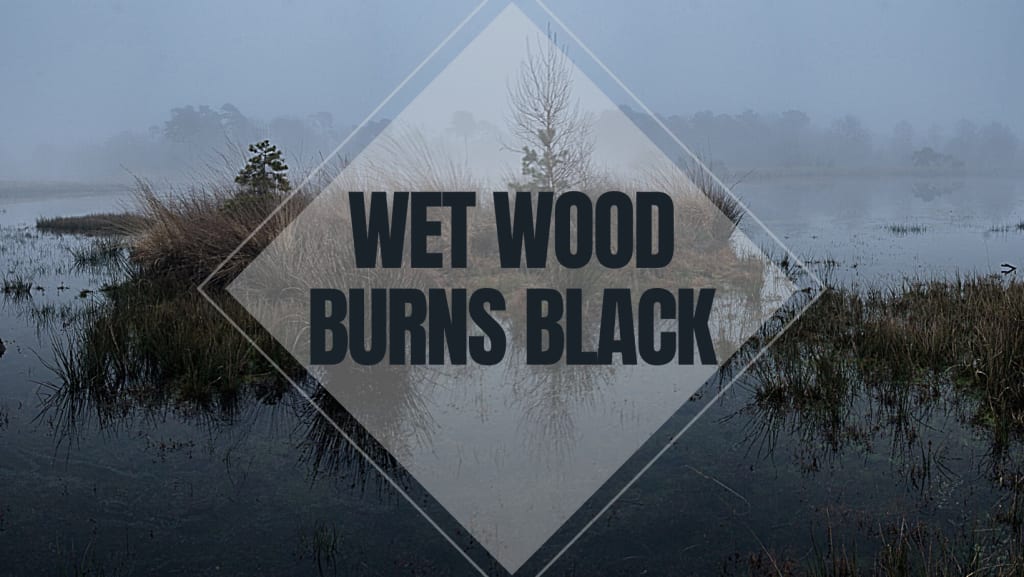
Zebi says that in the old times, people used to light fires just for their own sake. He told me they burned wood when it wasn’t cold and ran fuel even when they didn’t need to cook anything.
Zebi says there was liquid that burned, too, and even some types of stones.
In the old times, everything would burn.
Now, it’s harder. You don’t find much that’ll burn, and if you do, it’s too damp to be good for anything. Wet wood burns black, Zebi always says. You need something dry to start a fire, but if you want to dry something out, you need a fire for that too.
It’s not easy these days, finding something to burn.
Zebi says it was the ice caps. When they melted, all the water in the oceans came up onto the land. Now places where people used to be able to walk, all the places where trees used to grow, they’re just soggy salt marshes.
It’s still dry up on the mountains, but only certain folks are allowed up there. All we’ve got are the big piles of stone people in the old times started making, trying to lift themselves up out of the water.
Down here, there aren’t many trees left, and the plants that do grow are wet and spongy. Useless.
Paper burns, though, and that’s why there aren’t many books either, just the real important ones someone thought to keep safe. And even those have a way of catching fire on especially cold or hungry nights.
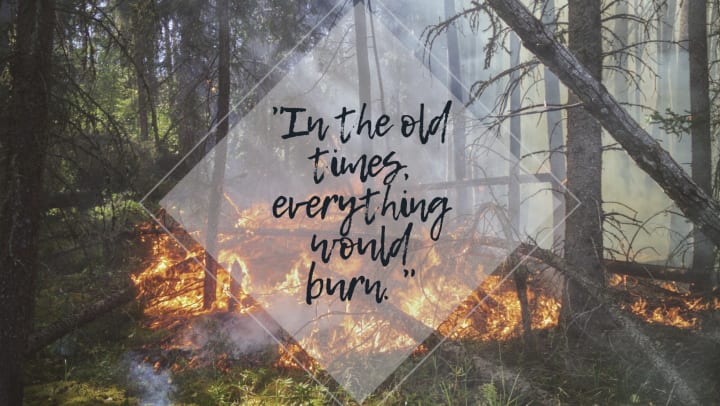
But Zebi’s notebook will never burn. I know it. He’d toss his own leg into the fire before he let anyone take a spark to those pages. He’s carried that thing since before I was born. It’s little, about as big as one of my hands, with two hard black covers and a bunch of pages inside. Zebi keeps it tucked under the knit cap he always wears.
That way, even if he falls down, it won’t ever touch the water.
The notebook is the reason we’re out here in the marshlands instead of snug up on the rocks with everyone else. They said we were crazy for wading out this way, and I’m not saying I disagree. The water here, it’s not just salty like the old oceans used to be. It’s full of everything the ocean found when it came up onto land, whatever was stuck in the guts of old factories and power plants. It’ll eat right through you, dissolve your shoes and melt your flesh, and stink like hell the whole time.
Zebi wrapped our feet real good, though, in every bit of plastic he could get his hands on. We saved for months, planning for this. I’ve got layers up to my thighs, tied so tightly I have to really focus if I want to bend my knees too much. Every night we pitch up our hammocks on two poles and swing into them, letting our legs hang over the sides and drip, drip, drip until it’s safe to let them touch the fabric.
Soon we’ll need new hammock poles, too. You get about a month out of a pair before you need to go bartering for more metal. Good thing Zebi brought some extras. They stick out of his pack, casting wobbly shadows on the water’s surface when he walks.

Zebi says we’re hunting for treasure. He says that’s why he’s kept the notebook all these years, ‘cause it tells him where the treasure is. It took him a long time to figure it out, but he says it’s real, and it’s out there, and we’re the ones who are going to find it.
Maybe it’ll be something we can use to barter passage up onto the mountains. Or maybe it’ll let us make a better life on the rocks somehow.
I’ve never had any treasure before. I can’t wait.
Zebi says we’re getting close. For a while, it all looked the same to me - long flat stretches of marshland dotted with crumbling buildings from the old times. But once we got far enough from the rocks, we started to see more structures, shiny with broken glass, leaning like ancient towers.
I thought I saw a tree yesterday, but it was just an old pillar with blackrot all over it. Pillars don’t burn. Blackrot will, but you don’t want to be anywhere near it when it does, or eat anything it cooks.
“Getting close. Another mile or so,” Zebi tells me, and I hurry up, sloshing through the muck as best I can. He’s holding the little black notebook up to the horizon and squinting like he’s trying to see through it.
I asked Zebi one time if he ever thought about burning any pages of the book and he said yes, he did. He told me there were some parts that didn’t mean anything, full of words from the old times like milk and employee and California, so when he was younger, he’d burned them.
Then he looked far away, like his eyes were seeing something I couldn’t, and said there was never a night cold enough to warrant burning a book.
Out here, the sun’s starting to go down. In the evening the sunlight reflects off the water, which is everywhere, and it’s hard to see anything but brightness stretching out in all directions. When the sunset is especially orange, it looks like the water itself could burn.
But I know it can’t.
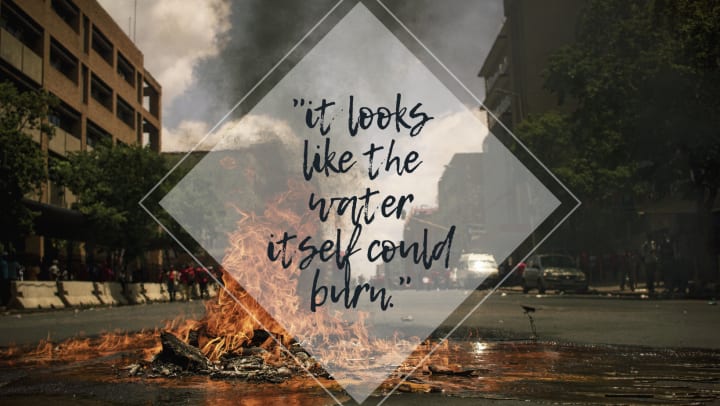
We stop for the night, but I can tell Zebi is restless, swaying in his hammock rather than going right to sleep. I know, because he snores when he’s asleep, and it’s quiet tonight. I hear a bird screeching somewhere, which means there’s some kind of dry place to land nearby. But a bird can fly a lot farther than a person can walk, so that’s a big nearby.
Still, I wonder whether we might find somewhere to sleep tomorrow that isn’t our hammocks.
The next morning, I figure out where the birds are nesting. There’s a cluster of old buildings ahead of us, sturdier than most of the other ones we’ve seen. Big slabs of concrete, some even flat enough to lay down on.
“That ain’t where we’re going,” Zebi says when I ask about checking them out. “Besides, we don’t know who might be there already.”
It’s best not to argue with Zebi, even when a nap on solid concrete is on the line. I hitch my pack up on my back and keep trudging after him. His notebook is in his hand, but he’s not looking at it right now. I watch it hanging by his side, the black cover frayed and worn.
We make it to a hilly spot where the water only comes up to our ankles. Big metal beams, big enough that they haven’t been eaten away by the waters, are piled up here like they fell off some giant structure. I see metal cables snaking through the water.
“Is this the treasure?” I ask, climbing up onto the pile. It smells strange, and it leaves a reddish stain on my hands. But metal is worth something back on the rocks, even if these pieces are far too big for anyone to carry back.

“No,” Zebi says, but he starts kicking at some debris. “Should be around here somewhere, though.”
“What do you think the treasure is?”
“I keep telling you, I don’t know.” Zebi says he likes that I ask so many questions, but he also gets tired of hearing them sometimes. “Something real valuable.”
“Can I help look?”
“Sure,” Zebi says, though he’s only half listening to me. He starts pulling at something with his bare hands, and by the time I’ve found a way down to him, I can see that he’s digging into what looks like a little cave made from an old crumbling wall and covered in blackrot. I worry it’ll take all the filtered water we’ve got left to rinse his arms off later, but then I forget about everything but the treasure.
I start digging too, ignoring the stench of rancid water and slimy blackrot. There are jagged bits of metal everywhere and I’m careful not to get cut, even as I’m shoving handfuls of mud and marshplant roots out of the way.
Zebi finds it first, lifting it out with a heavy grunt and setting it on the flattest, driest beam lying nearby. It looks like a metal box, big enough to fit one of the stray cats that roams the rocks.
Even though it’s supposed to be locked shut, enough of it has been rusted away that Zebi yanks it open with one hard tug, careful not to let the contents spill down into the water pooled at our feet.
As soon as he opens the thing, Zebi takes one look at what’s inside and starts laughing harder than I’ve ever seen him laugh in my whole life. It’s not like when someone on the rocks tells a good joke, or when he play-fights with me and lets me win. Now, Zebi laughs like he’d explode if he didn’t, like there’s something inside him that needs to come out. He bends his neck backwards and howls, tears forming at the wrinkled corners of his eyes.

“What is it? What’s inside?” I lean forward, jostling Zebi in my excitement to finally see the treasure.
At first, I think it’s more notebooks like the one Zebi carries. Then I see that it’s just a bunch of paper, flat little rectangles like the pages in Zebi’s notebook. It’s green, a soft green with darker patterns on it. I count twenty stacks of them, each wrapped in what looks like a paper ribbon.
“What is it?” I ask again, once Zebi starts calming down a little. “Is this the treasure?”
He wipes his eyes before looking down at me with a weird, sad smile. “I suppose,” he sighs. “At least, it was once.”
“It’s not treasure anymore?”
“Nah,” Zebi says. “It’s useless. Figure we’ll get more in trade for this hunk of metal, waterlogged as it is.” He thumps the top of the box, and some of the treasure slides out of it, falling into the water with a splash.
I watch as the whole pile of papers changes color, darkening as it absorbs the water. It swells a little, each individual piece floating a bit away from the others.
Most things in this world don’t change much when they hit the water, on account of already being pretty damp themselves. The wetness here, it seeps into every little thing, and even a rock left out in the sun, or the skin of your hands, it’ll all smell like the marsh if you crack it open.
“Maybe it’s not useless,” I say, and Zebi looks at me curiously. I pick up some of the treasure that’s still sitting in the box. It’s smooth and crisp under my fingers. And very, very dry.
I pull my flint striker from my pocket and get a spark just the way Zebi taught me. When I hold it to a bit of the green paper, sure enough, it catches up.
Soon both of us are watching hot orange flames dance up from my hand. There’s no black smoke, none of the stink or sting of a fire lit with stuff from the marshlands.
“It burns,” I say.
Zebi starts laughing again, but it’s not the harsh, bursting sound from before. He laughs like the fire, bright warm and twinkling.
“Look at that,” he says. “You found us some treasure.”

About the Creator
Lacey Doddrow
hedonist, storyteller, solicited advice giver, desert dweller



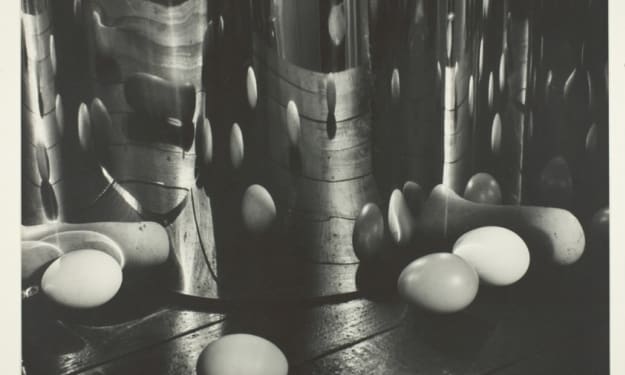

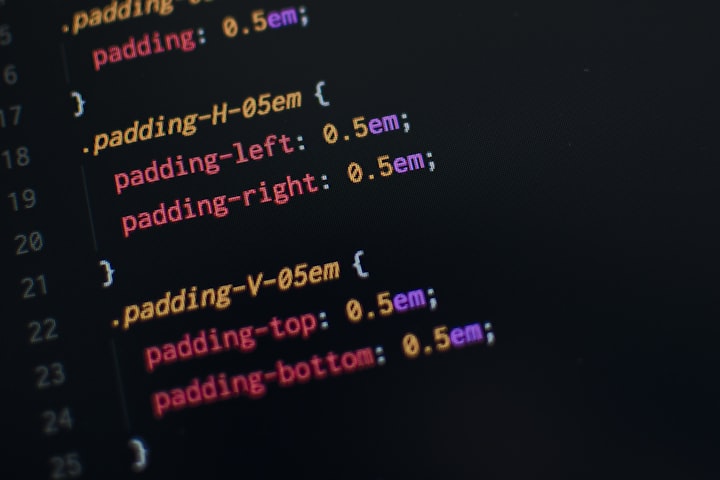

Comments
There are no comments for this story
Be the first to respond and start the conversation.